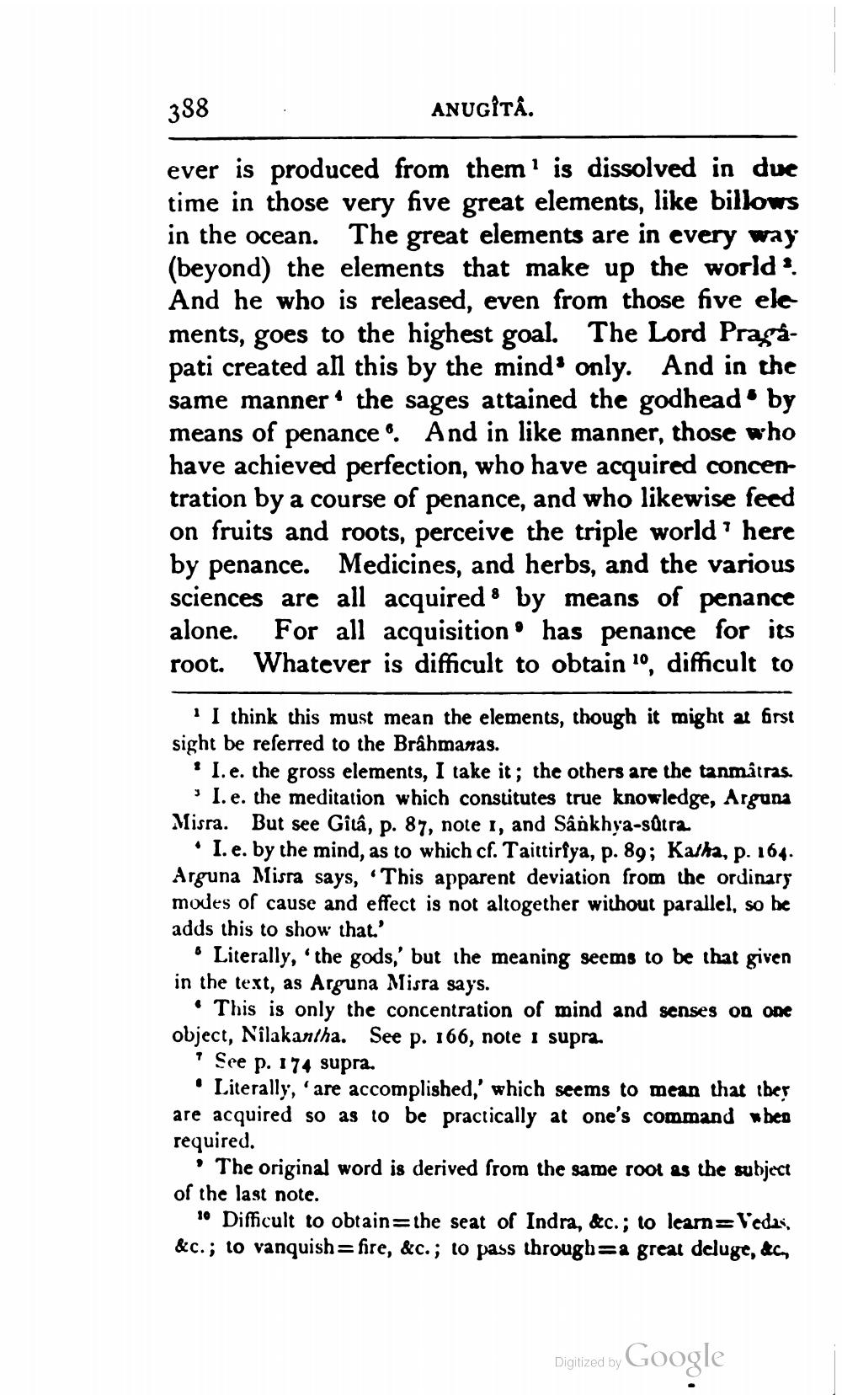________________
388
ANUGITÀ.
ever is produced from them' is dissolved in due time in those very five great elements, like billows in the ocean. The great elements are in every way (beyond) the elements that make up the world! And he who is released, even from those five ele ments, goes to the highest goal. The Lord Pragapati created as this by the minds only. And in the same manner the sages attained the godhead. by means of penance. And in like manner, those who have achieved perfection, who have acquired concen tration by a course of penance, and who likewise feed on fruits and roots, perceive the triple world' here by penance. Medicines, and herbs, and the various sciences are all acquired 8 by means of penance alone. For all acquisition has penance for its root. Whatever is difficult to obtain 10, difficult to
'I think this must mean the elements, though it might at frst sight be referred to the Brahmanas. * I.e. the gross elements, I take it; the others are the tanmatras.
I.e. the meditation which constitutes true knowledge, Arguna Misra. But see Gîtá, p. 87, note 1, and Sâökhya-sätra.
• I.e. by the mind, as to which cf. Taittirfya, p. 89; Kasha, p. 164. Arguna Misra says, This apparent deviation from the ordinary modes of cause and effect is not altogether without parallel, so be adds this to show that.'
Literally, 'the gods,' but the meaning seems to be that given in the text, as Arguna Misra says.
This is only the concentration of mind and senses on one object, Nilakantha. See p. 166, note i supra. ? See p. 174 supra.
Literally, 'are accomplished,' which seems to mean that iber are acquired so as to be practically at one's command when required.
• The original word is derived from the same root as the subject of the last note.
10 Difficult to obtain=the seat of Indra, &c.; to learn=Vedas, &c.; to vanquish=fire, &c.; 10 pass through=a great deluge, &cm
Digitized by Google




